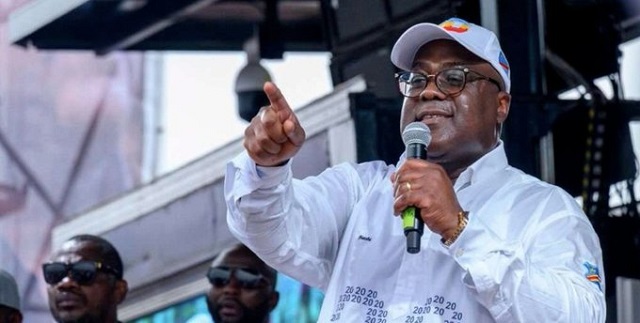
KINSHASA, DRC | XINHUA | Felix Tshisekedi has been re-elected as president of the Democratic Republic of the Congo for a second five-year term, securing 73.34 percent of the total votes cast in the elections held on Dec. 20, the Independent National Electoral Commission said Sunday.
Moise Katumbi, one of the main opposition candidates, attained the second position with about 18 percent of the votes, according to the commission.
The commission reported that over 18 million people, out of a total of 44 million registered voters, cast their ballots.
The president-elect is scheduled to be sworn in on Jan. 20, 2024, after the Constitutional Court approves the election results on Jan. 10.
General elections held on Dec. 20 witnessed alledged irregularities as the Central African country was slated to elect a new president, members of the National Assembly and Provincial Assemblies, along with municipal councilors. Denis Kadima, president of the electoral commission, said that the reported irregularities during the electoral process are “insignificant” and would not impact the election results.
Due to delayed arrival of voting materials and equipment, many polling stations were unable to open on time, leading to an official extension of polling to the following day. However, this extension was deemed contrary to electoral law and the Constitution by some presidential candidates.
A statement by five presidential candidates, including Martin Fayulu and Denis Mukwege, prominent challengers in the race, claimed that “irregularities sufficiently attest that the election on Dec. 20, 2023, was a sham, organized in violation of the fundamental rights of the Congolese people.”
Ahead of the announcement of election results by the electoral body, several opposition presidential candidates on Sunday called for widespread protests and demanded a redo of the election.
Tensions have been visibly escalating since the commencement of polling, akin to previous elections. In 2018, Tshisekedi ascended to power after winning the election, marking the country’s first peaceful transfer of power since its independence from Belgium. ■
 The Independent Uganda: You get the Truth we Pay the Price
The Independent Uganda: You get the Truth we Pay the Price





